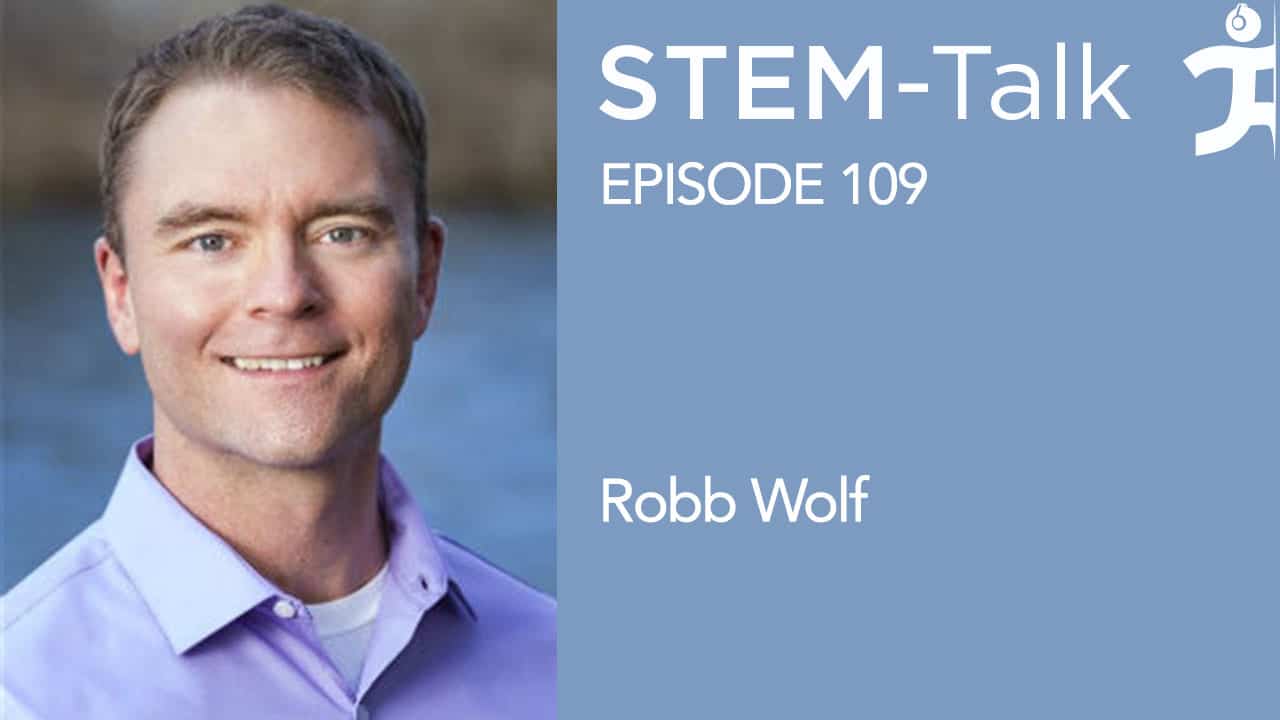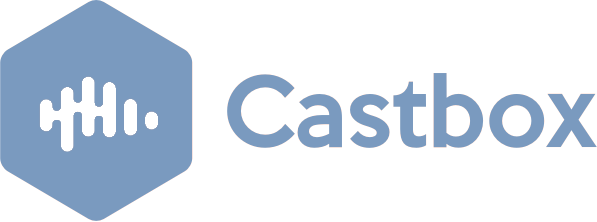STEM-Talk
Episode 109: Robb Wolf discusses whether eating meat is bad for you and the environment … and his new book “Sacred Cow”
// Jul 14, 2020

Today’s guest is Robb Wolf, who is making his third appearance on STEM-Talk. He has a new book, which is being released today, the same day as our interview with Robb goes live. His new book, “Sacred Cow: Why Well Raised Meat Is Good For You and Good For The Planet,” takes a critical look at the assumptions and also the misinformation about meat and provides contrarian views that are science-based showing that meat and animal fat are essential for our bodies.
Robb is a former research biochemist who is also the author of two other New York Times bestsellers, “The Paleo Solution” and “Wired to Eat.” Robb’s career includes a stint as a review editor of the Journal of Nutrition and Metabolism, a consulting role for the Naval Special Warfare Resiliency Program, and membership on the board of directors and advisors for Specialty Health, Inc. He also is on the board of the Chickasaw Nation’s Unconquered Life Initiative and works with a number of innovative startups with the focus on health and sustainability.
In today’s interview, Robb talks about his move from Reno, Nevada, to the hill country of Texas, the science that supports the importance of meat and fat in a healthy diet, his transition to a ketogenic diet, and how improving our metabolic health is one of the most important things we can do to protect ourselves against COVID-19.
[00:03:52] Ken opens the interview mentioning that Robb is making his third appearance on STEM-Talk. He was a guest on episode 27 of STEM-Talk, and also helped Ken co-host an interview with Allan Savory, episode 40. Ken then asks Robb about his move from Reno to the hill country of Texas. [00:05:57] Dawn mentions that Robb has started a new podcast since his last appearance on STEM-Talk. The new podcast is The Healthy Rebellion Radio, and replaces the Paleo Solution. Dawn explains that this new show follows a Q&A format, and features Robb and his wife, Nicki Violetti, answering listener questions. Dawn asks what prompted Robb and Nicki and to start this new podcast. [00:08:12] Dawn asks for an update on a project Robb discussed on episode 27 called the Reno Risk Assessment project, which was a program of diet and lifestyle changes that he and Nicki developed to improve health and performance of police and fire departments. [00:14:07] Dawn asks about the motivations and origins of Robb’s work with the Chickasaw Nation and its “Unconquered Life” project. [00:18:31] Dawn asks Robb about his comments that improving metabolic health is one of the most important things a person can do to protect themselves during the COVID-19 pandemic. [00:20:52] Dawn mentions that researchers at the University of North Carolina published a paper last year that showed only 12% of Americans have optimal metabolic health. The report pointed out that those with poor metabolic health included many people of normal weight. Dawn follows up by asking Robb if he also has found this to be true in his work with people. [00:24:09] Ken asks for Robb’s take on BMI, which can often be misleading. [00:25:21] Dawn asks if Robb’s personal diet has evolved since his previous appearance on STEM-Talk. [00:33:16] Ken mention’s that Robb’s new book, which is scheduled to come out the same day as this episode goes live, is titled, “Sacred Cow.” Ken goes on to say that Robb and his co-author, dietician Diana Rogers, look at the quandaries we face in raising and eating animals. The book particularly focuses on cows, which Robb describes as not only the largest of our farmed animals, but also the most maligned. Ken begins the discussion of the book by asking Rob why he decided to take on the vegans and the topic of eating animals. [00:38:22] Dawn asks Robb for his take on one of the two major arguments against the consumption of animal products: that eating foods such as beef and chicken and cheese are bad for our health, and what the true science is behind these two claims. [00:42:58] Dawn asks what happens when people replace meat and dense protein sources with plant-based alternatives like grains, legumes, peas, nuts and the like. [00:45:33] Robb discusses the White Oak Pastures Life Cycle Analysis on the beef they raise and how it compares to the Beyond Burger, in terms of net carbon emissions, and other environmental factors. [00:49:56] Dawn mentions that an international team led by Bradley Johnston, an epidemiologist at Dalhousie University, conducted a systematic review and meta-analysis and found very weak evidence that eating red meat is a health risk. Dawn goes on to mention that these authors received significant backlash for their scientific findings as well as attacks that were both personal and political and motivated more by emotional entrenched beliefs than by science. Dawn asks Robb for his opinion on the study as well as the backlash the authors received. [00:54:45] Ken mentions that the way the authors of this study have been savaged for publishing their findings reminds him of John Ioannidis, who was the guest on episode 77 of STEM-Talk. Ken mentions that Ioannidis argued that evidence-based medicine has been hijacked by researchers with vested interests and personal bias. Ken asks for Robb’s advice for people who are looking for the best information on what is right for their bodies, and how to avoid this sort of biased research. [00:58:21] Ken asks Robb to explain how he addresses the argument that beef supposedly is the most environmentally destructive food, and a serious threat to the environment, in his book. [01:05:42] Ken asks Robb about his analysis of Allan Savory’s work, who appeared on STEM-Talk, episode 40, who argued that increasing the number of livestock on grasslands, rather than fencing them off, is a way to stop desertification. [01:07:53] Dawn asks Robb about the argument that cattle husbandry is extremely water intensive. Robb discusses a study out of the Netherlands which shows that raising beef requires less water per pound than raising avocadoes or walnuts. [01:09:48] Ken mentions that the New York Times recently published an opinion piece titled, “The End of Meat is Here,” with the subtitle, “If you care about the working poor, about racial justice, and about climate change, you have to stop eating animals.” Robb gives a counterview on those claims. [01:12:57] Dawn mentions that Bill Gates, on his website, has a review he wrote of Vaclav Smils’ book, “Should We Eat Meat.” Gates writes that there are indeed environmental issues that need addressing in terms of raising livestock. Gates’ review, however, goes on to explain the many benefits to the poor and developing countries in regards to the introduction of meat into their diets. Robb gives his take on the constant drumbeat in the media for the elimination of meat from our diet despite data such as what is discussed in Gates’ review. [01:16:59] Ken asks Robb about his take on the PRIME Act, or the Processing Revival and Intrastate Meat Exemption Act. Ken explains that the current law requires processing of all beef, pork and lamb to be slaughtered and processed in USDA inspected facilities or state facilities, which are often hundreds of miles away from small farms and ranches. Whereas the PRIME Act would give ranchers and farmers another more local-based option for processing and marketing their meat, and also give local restaurants, grocery stores and other food-service establishments the ability to more affordably source local meat. [01:22:53] Dawn mentions that Robb is part of a team that has put together a Sacred Cow website. The website focuses on the moral, environmental and nutritional issues we face in raising and eating animals, particularly the cow. Robb discusses the website and how people can order his book. [01:25:18] Dawn asks about the film Robb and his co-author, Diana, are working on, which is designed to be complimentary to the book. [01:26:05] Dawn asks how Robb and Diana met and what lead them to start working together. [01:29:08] Dawn asks Robb for his advice for people who decline eating meat for religious or other reasons that have nothing to do with the environment. She asks Robb to talk abou optimizing and maintaining metabolic health if you’re a person who doesn’t eat meat. [01:30:59] Robb explains the 30-day challenge he gives readers in “Sacred Cow,” which helps people transition to a healthful and conscientious diet, as well as a way to support sustainable farms. [01:34:14] Ken asks if Robb senses that the mainstream medical community is opening up to the idea of ketosis and fasting as tools to help people lose weight and improve their health. [01:38:26] Dawn mentions that Robb and Nicki co-founded one of the first CrossFit affiliates in the country in 2004, where they worked a lot with people on their diet and exercise regimens. Dawn asks Robb to give an update on the gym. [01:39:13] Ken asks what Robb’s training looks like since many gyms are closed due to COVID-19. [01:42:51] Dawn closes the interview asking Robb if it’s true that he and Ken are working on a book together.





